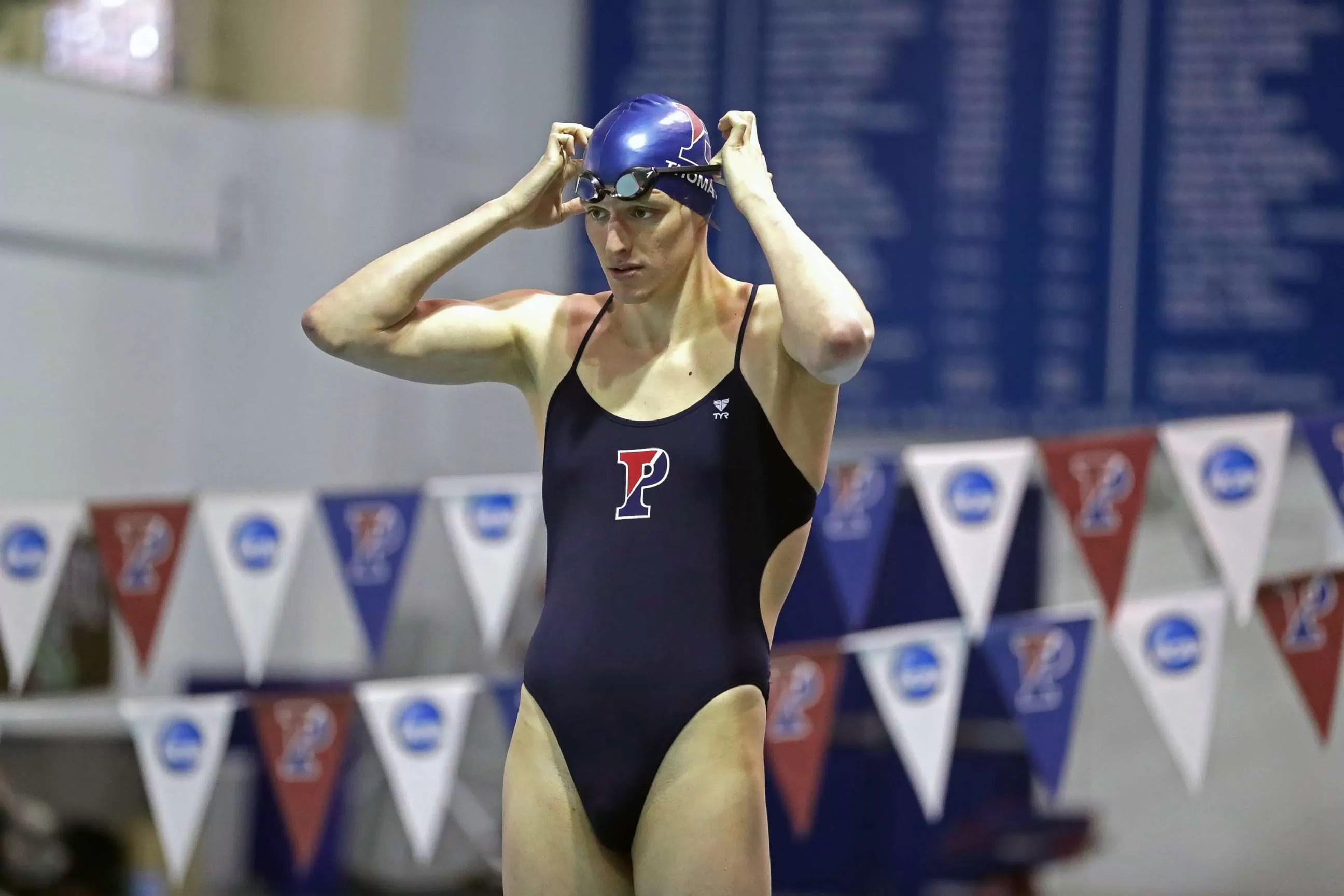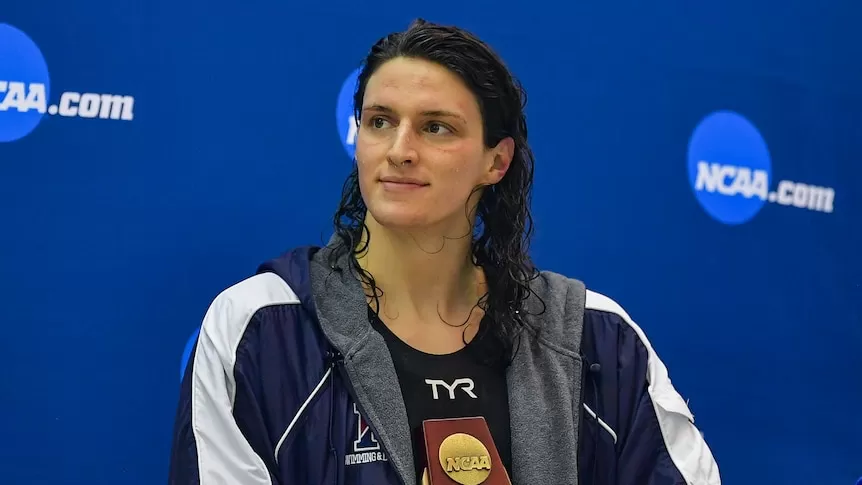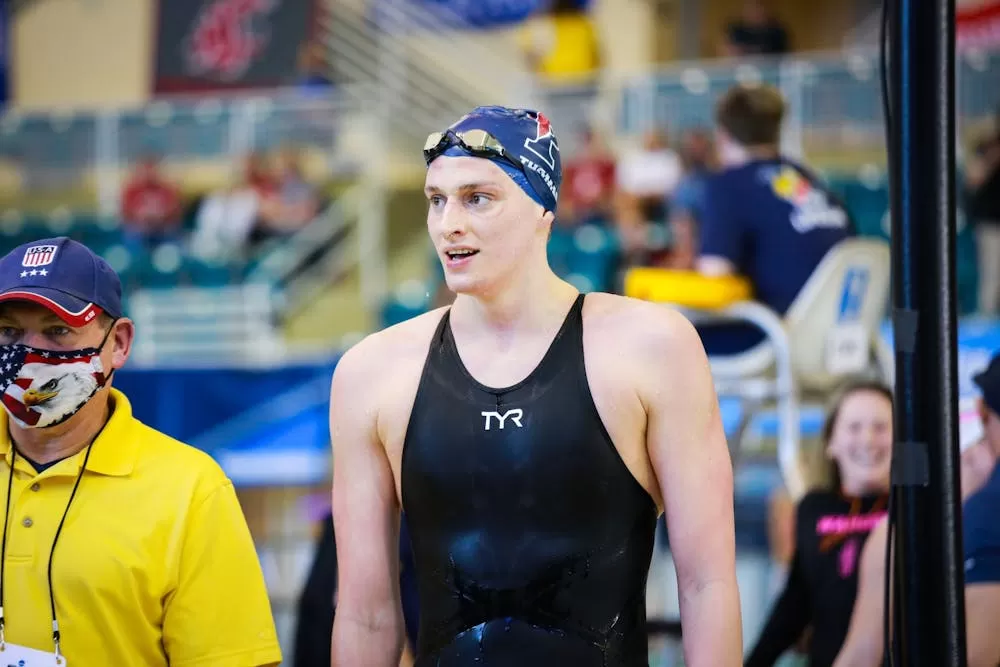NCAA Strips Lia Thomas of Titles: A Controversial Decision Ignites Fierce Debate
In an unprecedented and highly controversial move, the NCAA has officially revoked Lia Thomas’s swimming titles and all associated accolades, sparking intense debate across the sports world. This decision, driven by mounting pressure from various external groups advocating for a reassessment of Thomas’s participation in women’s collegiate swimming due to her transgender identity, has reignited discussions about fairness, inclusion, and the future of transgender athletes in competitive sports.

Lia Thomas’s Rise to Prominence
Lia Thomas, a transgender swimmer from the University of Pennsylvania, made history in 2022 by becoming the first openly transgender athlete to win an NCAA Division I championship in an individual event, securing the women’s 500-yard freestyle title. Her victory was met with mixed reactions—while many hailed it as a significant milestone for transgender athletes, others raised concerns about the fairness of her participation in women’s sports.
Critics argued that Thomas, who had competed as a male swimmer before transitioning, possessed physical advantages over her cisgender competitors. Factors such as muscle mass, size, and cardiovascular capacity were cited as potential disparities that could impact the fairness of competition. This sparked a broader conversation about balancing inclusion with fairness in the highly competitive realm of collegiate athletics.

The NCAA’s Landmark Decision
In a move that has sent shockwaves through the sports community, the NCAA announced the revocation of Lia Thomas’s titles and records. This decision followed “intensive consultations with various governing bodies, advocacy groups, and stakeholders in athletics,” according to an official statement. The NCAA emphasized the need to maintain a “level playing field” for all competitors, particularly focusing on fairness for cisgender women in the sport.
As a result, Riley Gaines, who had finished second to Thomas in the 500-yard freestyle event, will now be awarded the gold medal and the title of national champion. The NCAA’s decision means that all of Thomas’s records will be erased from its official history, a move that has profound implications for the future of transgender athletes in competitive sports.
Reactions and Implications
The NCAA’s ruling has been met with a wide range of reactions. Supporters of the decision argue that it is a necessary step to protect the integrity of women’s sports, ensuring that all athletes compete on an even playing field. Advocates for fairness in sports believe this move upholds the principles of competitive equality, particularly in events where physical attributes can play a significant role.
On the other hand, the decision has been sharply criticized by LGBTQ+ advocacy groups and those who view it as a setback for transgender rights and inclusion in athletics. Critics argue that this ruling undermines Thomas’s accomplishments and sets a concerning precedent for the treatment of transgender athletes in the future. They emphasize the need for more nuanced policies that balance fairness with the principles of inclusion and equality.

Riley Gaines’s Perspective and Broader Implications
Riley Gaines, a former swimmer from the University of Kentucky, finds herself at the center of this unfolding controversy. While she has expressed pride in her newly awarded title, Gaines also acknowledges the complex nature of the situation. “It’s a bittersweet moment,” she remarked, emphasizing the need for a broader conversation about fair competition and inclusivity in sports.
Gaines’s rise to prominence has been supported by a coalition of athletes, coaches, and advocacy groups focused on preserving the integrity of women’s sports. These groups have played a key role in advocating for policies that limit the participation of transgender athletes in women’s competitions, arguing that such measures are essential for maintaining fairness.

The Future of Transgender Athletes in Sports
The NCAA’s decision to strip Lia Thomas of her titles has set a significant precedent, raising important questions about the future of transgender athletes in competitive sports. The debate over how to balance fairness with inclusion continues to evolve, with potential implications for other sports organizations, including the International Olympic Committee.
As the sports community grapples with these complex issues, the story of Lia Thomas serves as a poignant reminder of the ongoing challenges faced by transgender athletes. The conversation about fairness, inclusivity, and the role of gender in sports is far from over, and the outcomes of these debates will shape the future of athletic competition for years to come.

Conclusion
While Riley Gaines celebrates her new title, the NCAA’s decision has sparked a firestorm of reactions, highlighting the need for a more equitable and inclusive approach to competitive sports. The controversy surrounding Lia Thomas’s participation and subsequent revocation of her titles underscores the complexities of navigating gender identity in athletics. As the debate continues, the sports world will be watching closely to see how governing bodies address these critical issues and strive to create a more inclusive environment for all athletes.


